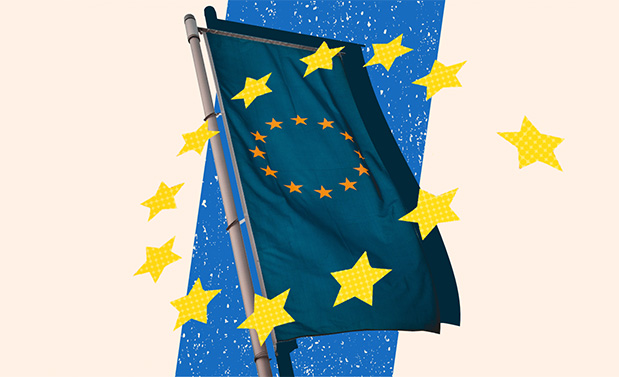China’s second largest property developer, Evergrande, is on the brink of collapse. This poses great risks for China’s financial growth and stability. But as Jonathan Katzenellenbogen notes, even if the property developer is bailed out, this will test China’s ability to manage a crisis of these proportions. “Whether or not the government chooses to bail out the company or decides to teach investors a lesson, there will be contagion and less faith in the Chinese economic model,” writes the financial journalist. This article was first published on the Daily Friend. – Jarryd Neves
The Evergrande crisis and China’s future
By Jonathan Katzenellenbogen*
Evergrande, China’s second largest property developer, might be close to collapse, posing immense risks for the country’s financial stability and growth. Last week the company failed to pay some of its bond holders, but it still has about a month left before it can be declared in default.
Even if the company does not default and is bailed out, the entire episode will severely test the ability of the Chinese authorities to manage a crisis. The Chinese central bank has more than enough reserves to arrange a bailout and deal with the fallout. Whether or not the government chooses to bail out the company or decides to teach investors a lesson, there will be contagion and less faith in the Chinese economic model.
The US chose not to bail out Lehman Brothers in 2008, in a crisis which was also centred on the property sector. That triggered a wider banking crisis and was only resolved after a massive bailout for the country’s largest financial institutions. The smaller scale of the current problem in relation to the economy, the power of the central bank, and the economy’s still strong growth rate means that it probably cannot be compared to the Lehman Brothers crisis.
What the Evergrande episode shows is that the Chinese model of capitalism is not immune to over-investment, bubbles, busts, and ensuing financial crises. It also shows that some of the stellar growth which has taken billions out of poverty since the late 1970s may have been on a shaky basis in recent years. Although the country can still generate exceptional growth, household and corporate debt levels are highly problematic. A further problem is that in the next decade China’s growth will slow significantly.
Evergrande’s distress and the problems of other companies in the Chinese property sector mark the end of a massive bubble. Property development has been one of the great engines of Chinese growth, in part because of the rapid rate of building and re-building. There are many cases where swathes of older apartment blocks are torn down and replaced with far bigger complexes. With property development comes infrastructure development, which helps to further generate growth. Today the property sector counts for around 30 percent of the country’s GDP.
For at least the past twenty years, the sector has been in an ever-growing speculative bubble, with much of this financed by debt. Accounts have been coming out of China for years, about empty apartment buildings and office blocks in the country’s major cities and of highways with few cars,
One of the political problems with the bursting of the bubble is that many Chinese, not all of them wealthy or middle class, have borrowed to speculate on the rise of the sector. They have now been caught out and this might contribute to political dissatisfaction with the party. Holders of Evergrande financial instruments have already protested in Beijing, according to Bloomberg. How this is resolved in a transparent and fair manner is an enormous test for China.
The Chinese Communist Party is a past master in using the dark arts of propaganda and political management. It cannot be coincidence that in less than a year, China’s private sector is going through such an immense series of challenges.
Evergrande’s distress comes months after the Chinese crackdown on the tech sector, with restrictions on gaming, online education, the type of algorithms than can be used, and the banning of anything connected with cryptocurrencies. Prominent entrepreneurs like Jack Ma, founder of Alibaba, as well as others have found themselves effectively silenced and some are in prison.
The Evergrande crisis was years in the making, but was triggered by the state with its declaration that ‘three red lines’ must not be crossed to maintain debt ratios at cautious levels. Evergrande was unable to meet these ‘red lines’ and as it was prevented from taking additional loans, it was forced into a liquidity crisis.
Also state-induced is the current growth slowdown due to power shortages brought on by the Chinese boycott of Australian coal. The Chinese authorities are also enforcing lower emission targets ahead of the planned decline after 2030. One of the consequences has been large-scale cutbacks in factory production.
In the first decade of this century Chinese growth averaged above ten percent, and in the next nearly eight percent. Sustaining such growth rates becomes almost impossible, with much key investment already having taken place and slowing population growth reducing the rise in demand. In the next decade China’s growth will be far lower. To raise the living standards of millions far away from the prosperity of the eastern seaboard, China still has to grow. And China needs to grow to ensure political stability.
The crackdown on business is portrayed by the Chinese as part of a move toward a more equitable and sustainable economy through the advance of Party General Secretary and President Xi Jinping’s ‘common prosperity’ drive. It is also a means to improve corporate governance, reduce speculation as well as enhance the environment. But there is more to this.
The most apt analogy for this crackdown is that of the Cultural Revolution in the late 1960s. This was when Mao Tse Tung effectively turned the party on itself to target opponents and enhance his own position. Recent events are all about large Chinese corporations and high profile entrepreneurs being brought to heel. The party is afraid that the tech sector is far too large and has been exercising social influence at odds with the discipline the Party wants. And while cracking down on tech, it is a good time to also deal with property speculation and emissions, and go for high profile people in business. Rather than drag this out over a long time, the view from on high might have been to get this all done in short of a year and put the country on a new course.
This amounts to another evolution of the Chinese economic model. In the early 1970s the model consisted of what Deng Xiaoping called ‘crossing the river feeling pebbles’ ̶ careful steps in liberalisation. Gradually overall regulation loosened, albeit with the state and party still exercising control, often through the allocation of credit. Now Xi has reasserted control, largely out of fear of what a free private sector could mean for the future of the Party.
Taking a view on ways to enhance the power of the Party has to be a very long term one, and the Party probably accepts that the crackdown will slow growth. But they clearly do not want some of the risks that go with capitalism – booms and busts, different views, and the growth of a vociferous middle class.
- The views of the writer are not necessarily the views of the Daily Friend or the IRR
Jonathan Katzenellenbogen is a Johannesburg-based freelance financial journalist. His articles have appeared on DefenceWeb, Politicsweb, as well as in a number of overseas publications. Jonathan has also worked on Business Day and as a TV and radio reporter and newsreader.
Read more:
- The Evergrande wobbly: Examining a housing bubble in China
- Evergrande, China, Fed meeting, Inflation – Sean Peche on developments in the global markets
- Evergrande contagion fears are over exaggerated – Steven Nathan
(Visited 151 times, 151 visits today)
Note: This article have been indexed to our site. We do not claim ownership or copyright of any of the content above. To see the article at original source Click Here













